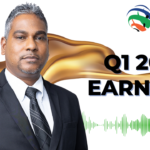We had a conversation today in our Telegram group about IPOs and expectations investors should have of how they perform. The short version of the conversation is that every investor has different expectations of IPOs, how they should perform and the goals for the companies coming to market are different from those of the investors.
The obvious question is, what does this have to do with the One Great Studio IPO and what does that have to do with me as the investor? Let’s review the 1GS IPO first and let’s discuss a reasonable framework to assess the opportunity on a personal level.
About One Great Studio
1GS is a pioneering digital-first marketing agency that boasts a comprehensive range of digital marketing services with a primary focus on digital channels. These services include search engine optimization (“SEO”), brand strategy and design, digital marketing, mobile app design and development, digital strategy, and website design and development. They cater to a diverse clientele spanning both local and international markets.
About One Great Studio IPO
1GS is seeking to raise J$338,627,439 to accomplish the following:
- Debt Reduction: reduce the debt owed to Barita Investments Limited. Background – 1GS borrowed 270,000,000 from Barita Investments to finance their acquisition of High Voltage SEO September 2022.
- Strategic Growth Initiatives: develop existing and new product lines and target regional expansion. In our interview with CEO – Djuvane Browne, he explained what this means for them. Watch the interview here: CEO Series – Djuvane Browne
- Develop Human Capital: adding to their business development and marketing capabilities.
- Listing expenses: the remainder of the proceeds will be used to clear their listing expenses.
Dividend Policy
The company intends to pay up to 30% of net profits available for distribution to shareholders.
For further details on the 1GS IPO we recommend checking out of YouTube channel for the Prospectus Review, CEO interview and Live Question & Answer with 1GS Founders.
Having done an overview of the offer, let’s talk about a reasonable framework for assessing an offer.
Investors make money from the stock market in two ways: Capital Gains or Dividends.
For IPOs there is usually heavy demand and limited supply (number of shares available vs applications). This bodes well for investors who are likely to experience gains in the short term as investors aim to get their target allocation after the company lists on the market. To assess the demand, you can look at the basis of allotment that is announced a few days after the offer closes. The general guideline is the higher the allocation, the lower the expected demand when the company lists on the market, at least in the short term.
IPO performance aside, we recommend you invest with a long term outlook of the market and your investments. This does not mean your goals all need to be 5+ years, but it means you assess each opportunity as a chance to get closer to your overall financial goals.
Here is a simple framework for assessing your investments:
- Do you understand the business model and how the company makes money?
- Is the company profitable or have prospects for increased profitability over the timeline of your investment goal?
- What are the potential risks to the company’s projected profitability and how can those be addressed?
- How do investors/market feel about the company? Is there strong positive sentiment towards the company? Strong sentiment can sometimes override poor performance in the short term.
- Other qualitative or quantitative factors relevant to the industry, regulations, etc. for the company
The above framework can serve as the basis for your research into any investment whether for an IPO or an already listed company.
If you’re not sure how to assess companies, we have a video that can help: The Key to Picking Great Stocks.
Disclaimer: the above article is not meant to be construed as financial advice. We are a community that provides education and information regarding Investment, Personal Finance and more. Speak with a licensed financial Advisor before making any investment decisions.


